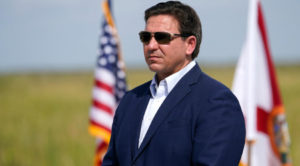The Media Research Center’s recent study revealed that Facebook has interfered with U.S. elections nearly 40 times since 2008, shedding light on the social media giant’s impact on political discourse. The study highlighted instances where Facebook censored 2024 presidential candidates like Robert F. Kennedy Jr. and candidates for Senate and House seats during the 2022 elections. Additionally, the platform took actions such as removing Virginia gubernatorial candidate Amanda Chase’s account and halting political advertising just before the 2020 election, according to the MRC’s analysis.
One significant aspect noted by the MRC was Facebook’s public statements in support of free online speech, which were contradicted by its actions. Despite initial assurances of backing free speech, Facebook’s policies shifted following so-called ‘civil rights’ audits, with COO Sheryl Sandberg endorsing leftist recommendations and implementing them, as outlined in the study conducted by MRC Free Speech America Vice President Dan Schneider and editor Gabriela Pariseau.
In response to Facebook’s election interference history, the MRC proposed recommendations for government leaders at both state and federal levels. These recommendations included calls for investigations into Facebook’s election meddling, enforcement of state election laws related to Facebook’s interference, and measures to prevent Big Tech companies from engaging in viewpoint discrimination, reflecting conservative concerns about tech companies’ influence on political discourse.
Media Research Center founder and President Brent Bozell highlighted the complexities within Facebook’s stance on free speech, suggesting that while Mark Zuckerberg may personally support free expression, the company’s actions often result in censorship that disproportionately affects one side of the political spectrum. This sentiment underscores conservative worries about Big Tech’s control over information flow and its potential impact on democratic processes.
Schneider and Pariseau’s detailed analysis delved into Zuckerberg and Meta’s nuanced approach to free speech, noting the company’s struggles to navigate between appeasing leftist demands for content control and addressing conservative calls for free expression. This ongoing tension reflects broader debates about the role of social media platforms in shaping public discourse and raises questions about the balance between combating misinformation and preserving open dialogue.





